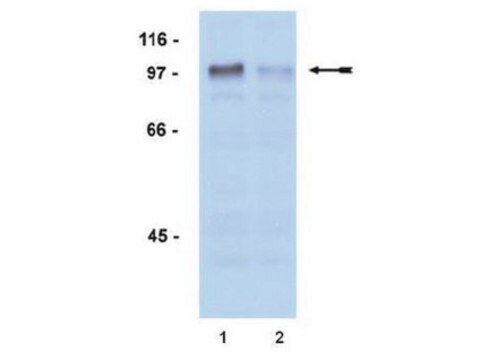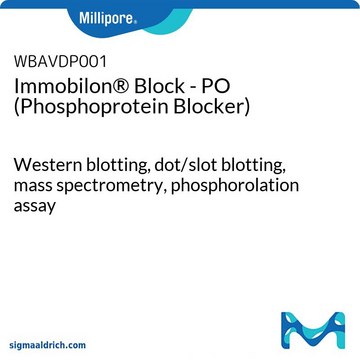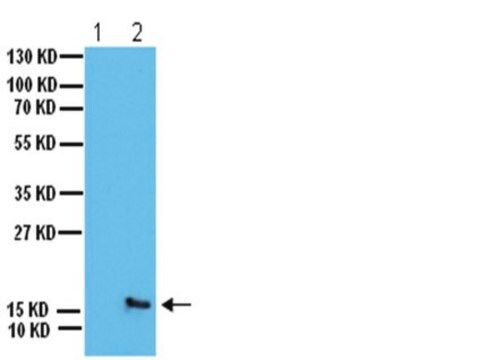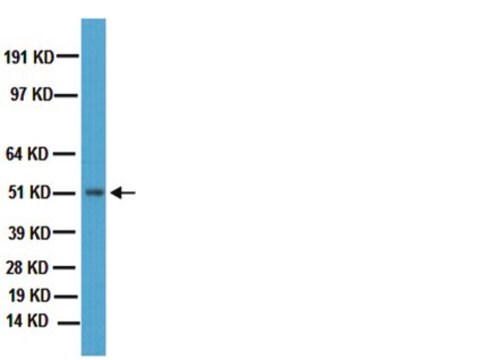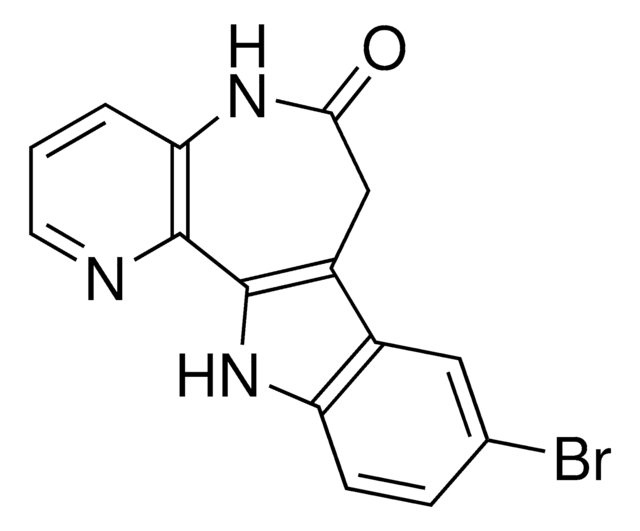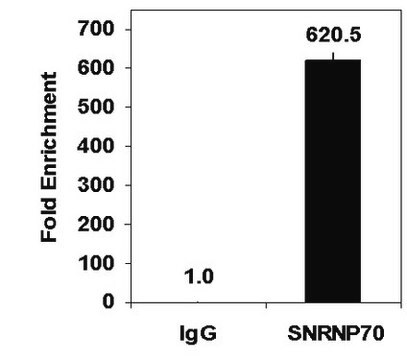07-1375
Anti-phospho-Androgen Receptor (Ser81) Antibody
Upstate®, from rabbit
Sinónimos:
Anti-AIS, Anti-AR8, Anti-DHTR, Anti-HUMARA, Anti-HYSP1, Anti-KD, Anti-NR3C4, Anti-SBMA, Anti-SMAX1, Anti-TFM
About This Item
Productos recomendados
biological source
rabbit
Quality Level
antibody form
affinity isolated antibody
antibody product type
primary antibodies
clone
polyclonal
purified by
affinity chromatography
species reactivity
human
species reactivity (predicted by homology)
dog (expected based only 1 amino acid difference), horse (expected based only 1 amino acid difference), primate (expected based only 1 amino acid difference), bovine (expected based only 1 amino acid difference)
manufacturer/tradename
Upstate®
technique(s)
western blot: suitable
NCBI accession no.
UniProt accession no.
shipped in
wet ice
target post-translational modification
phosphorylation (pSer81)
Gene Information
bovine ... Ar(280675)
dog ... Ar(403588)
human ... AR(367)
General description
Specificity
Immunogen
Application
Signaling
Epigenetics & Nuclear Function
Transcription Factors
Quality
Target description
Physical form
Storage and Stability
Handling Recommendations: Upon receipt, and prior to removing the cap, centrifuge the vial and gently mix the solution. Avoid repeated freeze/thaw cycles, which may damage IgG and affect product performance.
Analysis Note
R1881 (methyltrienolone) treated LNCap lysates
Legal Information
Disclaimer
¿No encuentra el producto adecuado?
Pruebe nuestro Herramienta de selección de productos.
Storage Class
12 - Non Combustible Liquids
wgk_germany
WGK 1
flash_point_f
Not applicable
flash_point_c
Not applicable
Certificados de análisis (COA)
Busque Certificados de análisis (COA) introduciendo el número de lote del producto. Los números de lote se encuentran en la etiqueta del producto después de las palabras «Lot» o «Batch»
¿Ya tiene este producto?
Encuentre la documentación para los productos que ha comprado recientemente en la Biblioteca de documentos.
Nuestro equipo de científicos tiene experiencia en todas las áreas de investigación: Ciencias de la vida, Ciencia de los materiales, Síntesis química, Cromatografía, Analítica y muchas otras.
Póngase en contacto con el Servicio técnico